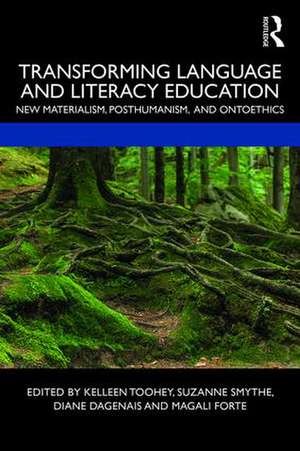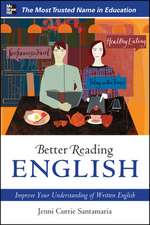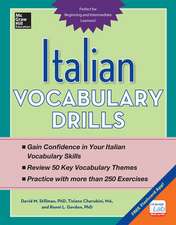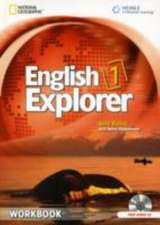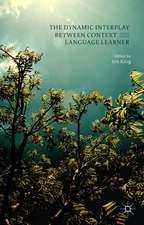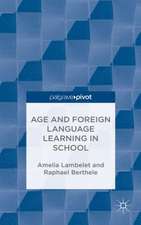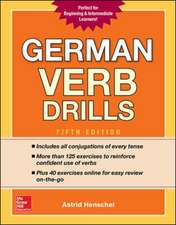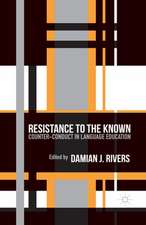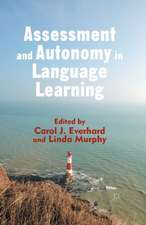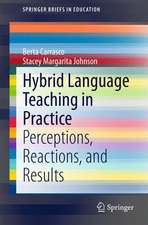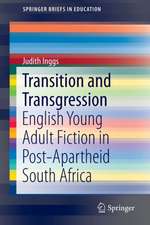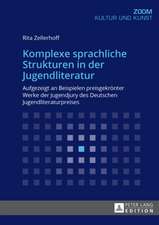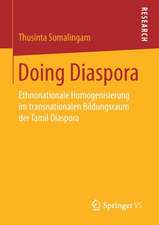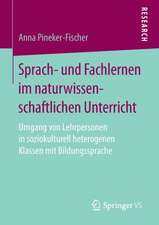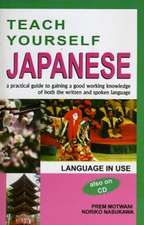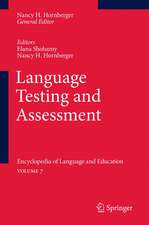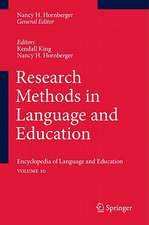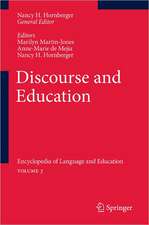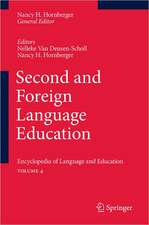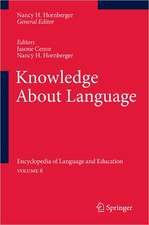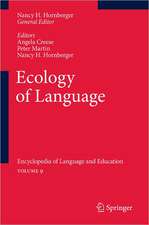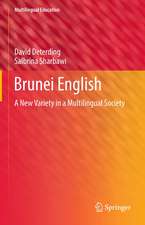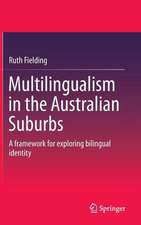Transforming Language and Literacy Education: New Materialism, Posthumanism, and Ontoethics
Editat de Kelleen Toohey, Suzanne Smythe, Diane Dagenais, Magali Forteen Limba Engleză Paperback – 22 iun 2020
In Transforming Language and Literacy Education, editors Kelleen Toohey, Suzanne Smythe, Diane Dagenais and Magali Forte bring together accessible, conceptually rich stories from internationally diverse authors to guide new practices, new conversations and new thinking among scholars and educators at the forefront of languages and literacies learning. The book addresses these concepts for diverse groups of learners including young children, youth and adults in formal educational and community-based settings. Challenging and disruptive, this is a unique and important contribution to language and literacy education.
| Toate formatele și edițiile | Preț | Express |
|---|---|---|
| Paperback (1) | 363.20 lei 6-8 săpt. | |
| Taylor & Francis – 22 iun 2020 | 363.20 lei 6-8 săpt. | |
| Hardback (1) | 999.51 lei 6-8 săpt. | |
| Taylor & Francis – 15 iun 2020 | 999.51 lei 6-8 săpt. |
Preț: 363.20 lei
Nou
Puncte Express: 545
Preț estimativ în valută:
69.50€ • 73.08$ • 57.43£
69.50€ • 73.08$ • 57.43£
Carte tipărită la comandă
Livrare economică 17 aprilie-01 mai
Preluare comenzi: 021 569.72.76
Specificații
ISBN-13: 9781138589360
ISBN-10: 1138589365
Pagini: 214
Ilustrații: 62
Dimensiuni: 152 x 229 x 13 mm
Greutate: 0.3 kg
Ediția:1
Editura: Taylor & Francis
Colecția Routledge
Locul publicării:Oxford, United Kingdom
ISBN-10: 1138589365
Pagini: 214
Ilustrații: 62
Dimensiuni: 152 x 229 x 13 mm
Greutate: 0.3 kg
Ediția:1
Editura: Taylor & Francis
Colecția Routledge
Locul publicării:Oxford, United Kingdom
Public țintă
PostgraduateCuprins
Introduction by Kelleen Toohey, Suzanne Smythe, Diane Dagenais and Magali Forte (co-editors)
Chapter 1: Making and unmaking literacy desirings: Pedagogical matters of concern from Writers’ Studio by Tara Gutshall Rucker and Candace R. Kuby
Chapter 2: Practising place-thought and engaging in critical place inquiry in a public park: Listening, letting go, and unsettling our writing pedagogies by Michelle A. Honeyford and Jennifer Watt
Chapter 3: Becoming posthuman – Bodies, affect, earth at the school garden by Saskia Van Viegen
Chapter 4: Lekta and literacy in early childhood education – Entwinements of idealism and materialism by Liselott Mariett Olsson
Chapter 5: Rethinking causality through children’s literacies by Jacqueline Barreiro
Chapter 6: A rhizomatic case analysis of instructional coaching as becoming by Brandon Sherman, Mari Haneda and Annela Teemant
Chapter 7: ‘This documentary actually makes Welland look good’: Exploring posthumanism in a high school documentary film project by Amélie Lemieux and Jennifer Rowsell
Chapter 8: Affect theory as a lens on teacher thinking in adult language classrooms by Monica Waterhouse
Chapter 9: The problem and potential of representation: Being and becoming by Margaret MacDonald, Cher Hill and Nathalie Sinclair
Chapter 10: Exploring affect in stop frame animation by Gabriele Budach, Dimitri Efremov, Daniela Loghin and Gohar Sharoyan
Chapter 1: Making and unmaking literacy desirings: Pedagogical matters of concern from Writers’ Studio by Tara Gutshall Rucker and Candace R. Kuby
Chapter 2: Practising place-thought and engaging in critical place inquiry in a public park: Listening, letting go, and unsettling our writing pedagogies by Michelle A. Honeyford and Jennifer Watt
Chapter 3: Becoming posthuman – Bodies, affect, earth at the school garden by Saskia Van Viegen
Chapter 4: Lekta and literacy in early childhood education – Entwinements of idealism and materialism by Liselott Mariett Olsson
Chapter 5: Rethinking causality through children’s literacies by Jacqueline Barreiro
Chapter 6: A rhizomatic case analysis of instructional coaching as becoming by Brandon Sherman, Mari Haneda and Annela Teemant
Chapter 7: ‘This documentary actually makes Welland look good’: Exploring posthumanism in a high school documentary film project by Amélie Lemieux and Jennifer Rowsell
Chapter 8: Affect theory as a lens on teacher thinking in adult language classrooms by Monica Waterhouse
Chapter 9: The problem and potential of representation: Being and becoming by Margaret MacDonald, Cher Hill and Nathalie Sinclair
Chapter 10: Exploring affect in stop frame animation by Gabriele Budach, Dimitri Efremov, Daniela Loghin and Gohar Sharoyan
Recenzii
"This book unsettles the reader through stories, questions, wonderings, and wanderings; it takes us through a series of encounters into the not-yet-known. The authors invite us to explore, as educators, the emergence of our own capacity to affect and be affected by others—where those others are both human and more-than-human. The multiple and emergent educational encounters that the authors offer us are embodied, and they are grounded in place; and they take us, through new materialist and posthumanist experimentation, into inspiring new ways of knowing-in-being. Together these papers engage in a Baradian ethico-onto-epistemological exploration of pedagogical becomings. They are beautifully written and make a vital and timely contribution to educational thought and practice."
Bronwyn Davies Emeritus Professor Western Sydney University
"Calling for radical hope, this volume opens potentials for language and literacies research that reaches beyond critique alone and into more just, speculative futures. Toward such futures, the authors develop orientations to language and literacies research that value the ‘more than’ of experience that affects this sense of radical hope."
Christian Ehret, McGill University
Bronwyn Davies Emeritus Professor Western Sydney University
"Calling for radical hope, this volume opens potentials for language and literacies research that reaches beyond critique alone and into more just, speculative futures. Toward such futures, the authors develop orientations to language and literacies research that value the ‘more than’ of experience that affects this sense of radical hope."
Christian Ehret, McGill University
Descriere
This book mobilizes concepts associated with new materialism, posthumanism, and relational ontologies with respect to language and literacy education. The book stimulates other educators to engage in similar ‘experiments’, and assesses how these concepts offer new ways of understanding diverse educational sites.
